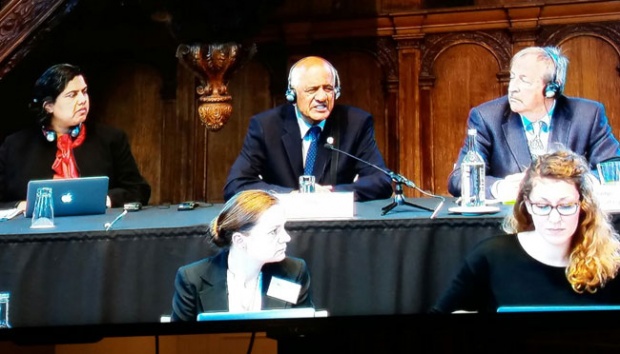
TEMPO.CO, Jakarta - The government should not underestimate the results of the International People's Tribunal (IPT) on the events of 1965.
It would be in vain to react strongly against the decision of the Court of the International Community, because it will only further tarnish Indonesia’s image.
The IPT began its hearings in November 2015 and made a decision on Wednesday last week on the alleged human rights violations by the state during the period of 1965 to 1966.
The court declared that genocide had occurred in the eradication of supporters and members of the Indonesian Communist Party in 1965 and 1966.
The IPT also recommend the Indonesian government to apologize for the incident and to carry out an investigation.
The strong reaction was immediately shown by Defense Minister Ryamizard Ryacudu, who considered the trial as a sham and aims to divide the Indonesian people.
In the meantime, Coordinating Minister for Political, Legal and Security Luhut Binsar Pandjaitan rejected that mass murder had occurred.
The IPT is not an official institution; however recommendation of this tribunal is quite influential.
The same court ever prosecutes Israeli crimes against the Palestinian people, which ended with recognition of the world.
Moreover, the conclusion that genocide took place in 1965 in a not a groundless allegation.
The government has insisted that massacres in 1965 and 1966 constitute a conflict of horizontal, rather than a vertical conflict which involves the state, so the state does not need to apologize to the victims.
However, numerous evidence, including the results of the investigation the Commission in 2012, shows the presence of state interference in violence committed in various parts of the country.
Hundreds of thousands of people were killed and tens of thousands of people imprisoned for a dozen years without trial.
Signs of change was shown by President Jokowi during his speech in front of the Parliament on August 14, 2015 by claiming the government was trying to find a way out of the wisest and most noble way to resolve cases of human rights violations in the country, including reconciliation.
Governor of the National Resilience Institute Agus Widjojo and member of the Presidential Advisory Council, Sidarto Danusubroto, also held the symposium "Membedah Tragedi 1965" in April this year.
If the government is serious, there are two steps that that they can take related to the events in 1965 and 1966.
First, through legal channels. The results of the investigation done by the National Commission of Human Rights (Komnas HAM), which recommended the investigation, could be followed by Attorney General Office.
The second step is the non-judicial way by achieving reconciliation after the acknowledgment that gross human rights violations involving the state has been committed.
But both measures are still difficult to expect.
Even now, a number of officials rejected the result of tribunal in The Hague.
The government should respect the ruling of the IPT and attempt to settle the cases in 1965 and 1966 in a fair and dignified way.
(*)























